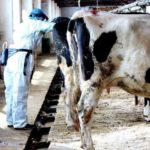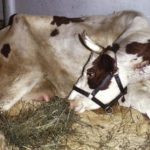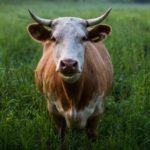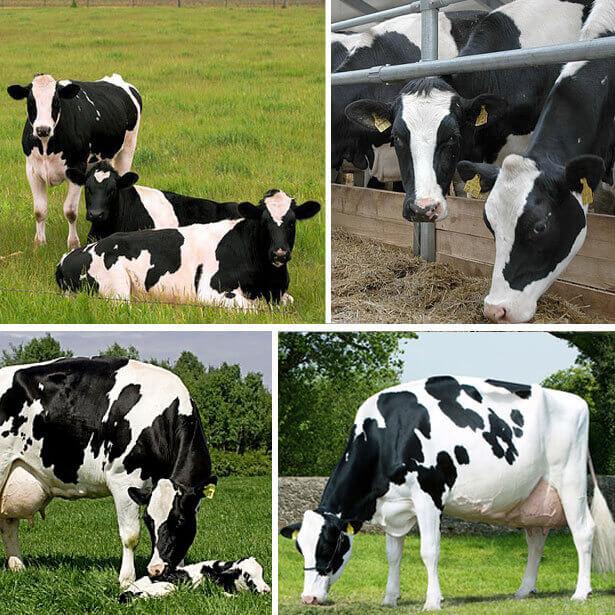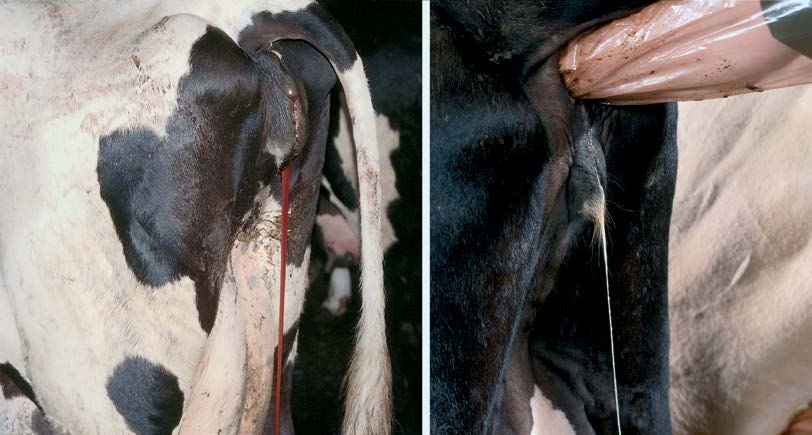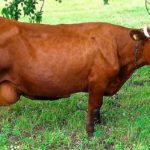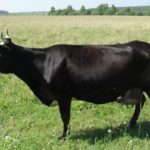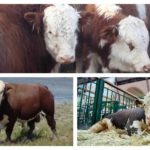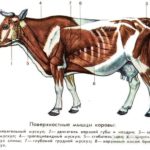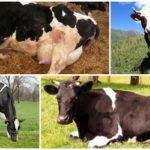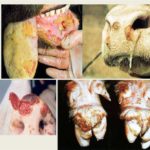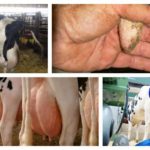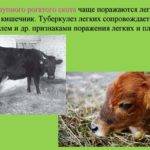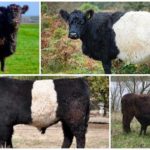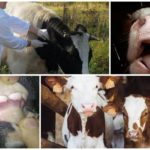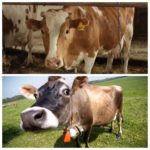Infectious diseases such as vaginitis can spread rapidly within a herd after one individual becomes ill. The disease has a negative effect on reproductive system of cows, provoking disruptions in reproductive processes. Let's look at the causes and signs of vaginitis in cows, how to diagnose and treat the disease, and what preventive measures to take.
What is vaginitis
Vaginitis in cattle is a pathology of an infectious nature, in which swelling and inflammation of the vaginal mucosa in females is observed.Usually young cows of breeding age or weakened ones that already have some kind of disease get sick. Calves rarely get sick. Vaginitis spreads quickly and animals in the herd can become ill within a few days. Without treatment, the infection can lead to the development of endometritis, sepsis, etc. Despite complications, vaginitis does not cause infertility.
There are several types of vaginitis:
- serous, in which swelling and minor hemorrhages are noted;
- catarrhal-purulent, characterized by swelling, ulcers on the mucous membrane, erosions, hemorrhages;
- diphtheria, which is characterized by an increase in temperature, bloody discharge with an unpleasant odor, fibrosis of the vaginal mucosa;
- phlegmonous, differs from the previous type by purulent discharge interspersed with necrotic tissue.
The incubation period of this disease lasts 3 weeks.
Causes and risk factors
The causative agents of vaginitis are streptococci. Bacteria enter the body of cows through contact of sick individuals with healthy ones, during mating (bulls do not get sick, but remain carriers of infection). Bacteria are transmitted to cows through dirty bedding, manure, uncleaned and undisinfected equipment, care products, feeders, and drinking bowls.
Streptococci enter the cow's body through damage to the mucous membrane of the genital organs, which the animal can receive during childbirth, mating, both natural and artificial. There is a possibility of infection due to improper treatment of vaginal diseases, when the drugs leave burns.
Signs and symptoms of the problem
With vaginitis, a sick individual behaves restlessly, gets nervous, waves its tail, arches its back, spreads its legs. Discharge flows from the vagina (bloody, with mucus, pus) and dries on the inner surface of the tail. The genitals swell and turn red. The cow urinates and defecates more often.
In breeding bulls, vaginitis occurs without symptoms. The only signs are that sometimes small nodules the size of a grain of millet appear on the surface of the penis, bulls can lose weight with good nutrition, and the disease can lead to impotence.
Diagnostic measures
It is impossible to make a correct diagnosis on your own, because the symptoms of vaginitis are similar to those of other cattle diseases. For example, vaginitis must be differentiated from brucellosis, vibriosis, and trichomoniasis. In addition to confirming vaginitis, it is necessary to establish its subtype, the scheme and course of treatment, and the choice of drug depend on this. For research, a swab is taken from the vagina of a sick individual.
How to treat vaginitis in cattle
First of all, after diagnosis, the sick animal must be placed in a separate, remote stall. The place where it stood must be cleaned and disinfected to destroy the infection. Then change the bedding.
Treatment time lasts approximately 2 weeks. In case of acute vaginitis, the cow is prescribed antibiotics, and the vagina is washed every day.
For washing, use a warm solution of potassium permanganate of low concentration, 1% solution of salt or soda. For intense inflammation, use novocaine or ichthyol ointment, a mixture of fat and opium tincture in a ratio of 9 to 1. Use “Furacillin” (4 pcs per 1 liter).tablets), “Vagotil” (15 ml per liter), hydrogen peroxide (1% solution), for bleeding – alum solution (3% solution)
To administer medications, use a large syringe, and boiled water is used to prepare the solution. Washing is done once a day, in case of severe inflammation - 2 times, in the mornings and evenings.
After washing, the vagina is lubricated with syntomycin, ichthyol or tetracycline ointment. The product is applied to a tampon, inserted into the vagina and left for a day. Then it is replaced with a new one.
Folk remedies include infusions of onion, honey and garlic. Honey infusion is prepared from 1 tbsp. l. honey and Ichthyol. A tampon is moistened in a warm solution and placed in the vagina for 3 hours. Onion infusion is prepared from onion juice and Ichthyol, which are taken in equal proportions. Dilute 2/3 with water. This product is used to lubricate the mucous membranes of the genital organs. Garlic infusion is prepared from garlic juice (1 part), Ichthyol (3 parts) and water (6 parts). A tampon is soaked in it and left in the cow’s vagina for the whole day.
Prevention
Due to the likelihood of re-infection, it is necessary to pay attention to disease prevention. All sick animals should be kept separately until complete recovery. Disinfect the stalls of sick cows with slaked lime.
Since the infection is transmitted during mating, it is better to use artificial insemination rather than natural insemination. This method is more hygienic. During childbirth, it is necessary to maintain sterility, change the bedding, and treat the cow’s genitals with an antiseptic.
Maintaining cleanliness is important not only during childbirth; bedding and equipment should always be clean. Cleanliness reduces the likelihood of vaginitis and any other infections.
Vaginitis in cows is an infection that can lead to complications such as endometritis, general infection and other problems. The disease is contagious, but is highly treatable. If therapy is started in a timely manner, the prognosis for cows is favorable.

